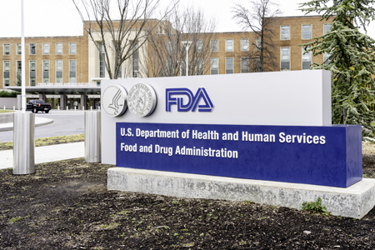FDA Issues New Guidance On Discontinuance Or Interruption In Manufacturing Of Finished Products Or APIs
By Peter H. Calcott, Ph.D., FRSC, president and CEO, Calcott Consulting LLC

In April 2023, the FDA issued an updated guidance1 superseding and replacing the previous 2020 document2 about managing drug shortages and explaining what was expected of industry and how the agency was going to manage the shortfalls. The spirit of the original document remains (see our review of that 2020 document3), although certain details are changed to add clarity and to reflect current thinking.
In the new guidance, the FDA describes how managing drug supply is critical in assuring and protecting public health. FDA states “providing FDA timely, informative notifications about changes in the production of certain finished drugs and biological products as well as certain active pharmaceutical ingredients (API) may help the Agency in its efforts to prevent and mitigate shortages.”
This new guidance describes the scope to include both permanent discontinuances as well as temporary interruptions in the manufacture of drugs including biological products and blood and blood derived products. It also applies to drugs manufactured without an NDA or ANDA such as over-the-counter-drugs (OTC). These interruptions in supply can be influenced by both the actual manufacture of the product and the production and supply of the API required to make these drugs. Thus, this guidance covers and applies to both drugs and APIs.
The FDA contends that with this information, it can keep the public informed of drug shortages and work with other manufacturers to mitigate the risks to the public health in general. This appears to be the main driver for this guidance.
Are all drugs impacted by this guidance? Only drugs that meet the following requirements are covered. Quoting FDA, drugs that are “Life supporting, life sustaining or intended for use in the prevention or treatment of a debilitating disease or condition, including any such product used in emergency medical care or during surgery or any such drug that is critical to the public health during a public health emergency declared by the Secretary” are covered. APIs impacting these drugs are also included. Thus, drugs that do not meet these stringent requirements are exempt from reporting.
Who is responsible for reporting to the FDA? The license holders (NDA, ANDA, and BLA) are responsible to report on supply issues irrespective of whether they make the drugs themselves or contract out to CDMOs. With this responsibility, the license holder must have a rugged system in place with the CDMO to assure it is kept informed of the situations at these plants. For drugs manufactured without a license, e.g., OTCs, the manufacturer is responsible to report the interruptions.
If my market share for a drug is small or there are alternative options on the market unaffected, do I still have to report to FDA? The simple answer is yes, you must report. Irrespective of your market share, the amount of product you supply, or the amount you still have in distribution, you must inform FDA even if you believe the impact is small. FDA will take the information you supply and analyze the data and communicate to the public appropriately. The FDA indicates that it expects you to report even if you are in doubt or do not believe there is a supply issue. The one exception is that manufacturers of blood and blood products that supply less than 10% of the market are exempt from reporting.
If I am an API manufacturer, must I report to FDA of an interruption? Since you sell the API to the drug manufacturer, they are responsible, but the FDA expects you to work with the drug product manufacturers to assure they are kept informed and up to date. FDA also expects the license holder for the drug to have a rugged system to assure it is kept abreast of any issue in your plants.
When do I have to notify the FDA of an interruption, either planned or unplanned? For planned discontinuances of production, you must inform FDA six months before the planned stoppage. The same applies to API discontinuances. If six months is not possible, the FDA gives some flexibility. But, at least, as soon as it is clear that you plan to discontinue production, you must report, especially if you suspect that product supply in the marketplace might be affected.
For unplanned interruptions, it is expected that you communicate to FDA within five days of you identifying the problem. And this applies to API manufacturing as well.
How do I communicate with FDA on these issues? Do not use standard routes of communication with FDA such as Field Alerts and Biological Product Deviation Reports; there are separate routes for communication through CBER and CDER drug shortage sites on the FDA website and by email (https://edm.fda.gov, drugshortages@fda.hhs.gov, cbershortage@fda.hhs.gov).
What information does the FDA require to be communicated? FDA requires the name of the drug (including National Drug Code number), manufacturer and license holder, define whether it is permanent or temporary disruption, and what is the root cause of the potential interruption. Describe if the API is affected as appropriate and whether a device is impacted. Describe the duration of the anticipated shortfall. Describe as much detail as possible on the circumstances including reasons and what is being done to mitigate the risk, if at all possible. The FDA requests information on how much product is on hand, how long supplies will last at current usage rates, and any timings that may be helpful. Information that may be useful includes how many production lines or facilities are involved, when the last batches may be released to the market, and the presence or absence of reserve stock. Any potential communication to stakeholders (such as dear doctor letters) you plan to use would also be useful to the FDA. Expect to communicate frequently with the FDA as new information is forthcoming and for as long as an issue is still evident.
Much of this information is confidential; will it be secure? The FDA assures industry it will treat this information as confidential and not disclose it. The agency will use it to help in its plans to protect public health.
Why does the FDA need all this commercial information? FDA uses information to plan for public health during drug shortages, until the issues are resolved.
If I am beginning to run short of product and am running at full capacity but production is not impacted, do I notify FDA? Yes, the FDA wants to know if the demand is beginning to exceed supply, so it is aware of potential product shortages. That helps them to prioritize their reviews for production expansions in the supply chain.
What happens if I do not follow this guidance and do not keep the FDA abreast of my supply issues? Expect to receive a communication from the FDA pointing out the deficiencies. You might also get a “non-compliance” letter from them and other actions. But you will be able to defend your situation before the FDA publishes on its website a drug shortage affecting your supply chain.
What is clear in this rendition of the guidance is that FDA has limited this reporting to certain types of drugs that are the most important from a public health perspective – that is, those that impact the public health most critically. That includes both drugs and biologics, including those using devices, and the APIs in these drug products. The agency is taking on a more strategic role to mitigate and prevent supply shortages in the public domain. It is simply requesting industry to supply the raw data and leave the analysis of the impact on drug supply to the agency. The FDA is clearly taking charge.
References
- Notifying FDA of a Permanent Discontinuance or Interruption in Manufacturing under Section 506C of the FD&C Act. Guidance for Industry, April 2023, https://www.fda.gov/regulatory-information/search-fda-guidance-documents/notifying-fda-discontinuance-or-interruption-manufacturing-finished-products-or-active
- Notifying FDA of a Permanent Discontinuance or Interruption in Manufacturing under Section 506C of the FD&C Act. Guidance for Industry, March 2020, https://www.fda.gov/regulatory-information/search-fda-guidance-documents/notifying-fda-permanent-discontinuance-or-interruption-manufacturing-under-section-506c-fdc-act
- https://www.outsourcedpharma.com/doc/fda-finds-drug-shortages-are-mostly-caused-by-quality-issues-0001
About The Author:
 Peter H. Calcott, D.Phil., is president and CEO of Calcott Consulting LLC, which delivers solutions to pharmaceutical and biotechnology companies in the areas of corporate strategy, supply chain, quality, clinical development, regulatory affairs, corporate compliance, and enterprise e-solutions. He has also served as an expert witness. He also teaches at the University of California, Berkeley in the biotechnology and pharmaceutics postgraduate programs. Previously, he was executive VP at PDL BioPharma, chief quality officer at Chiron and Immunex Corporations, and director of quality assurance for SmithKline Beecham and for Bayer. He has also held positions in R&D, regulatory affairs, process development, and manufacturing at other major pharmaceutical companies. He has successfully licensed products in the biologics, drugs, and device sectors on all six continents. Calcott holds a doctorate in microbial physiology and biochemistry from the University of Sussex in England. He has been a consultant for more than 20 years to government, industry, and academia.
Peter H. Calcott, D.Phil., is president and CEO of Calcott Consulting LLC, which delivers solutions to pharmaceutical and biotechnology companies in the areas of corporate strategy, supply chain, quality, clinical development, regulatory affairs, corporate compliance, and enterprise e-solutions. He has also served as an expert witness. He also teaches at the University of California, Berkeley in the biotechnology and pharmaceutics postgraduate programs. Previously, he was executive VP at PDL BioPharma, chief quality officer at Chiron and Immunex Corporations, and director of quality assurance for SmithKline Beecham and for Bayer. He has also held positions in R&D, regulatory affairs, process development, and manufacturing at other major pharmaceutical companies. He has successfully licensed products in the biologics, drugs, and device sectors on all six continents. Calcott holds a doctorate in microbial physiology and biochemistry from the University of Sussex in England. He has been a consultant for more than 20 years to government, industry, and academia.
